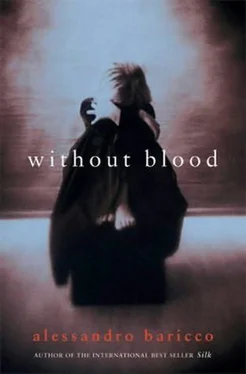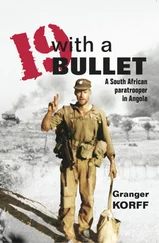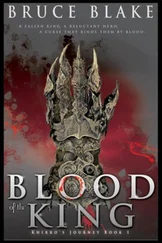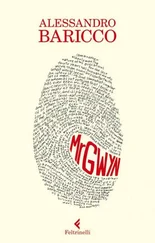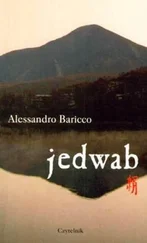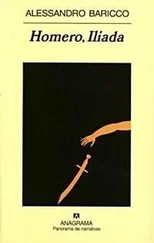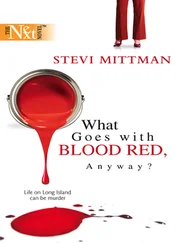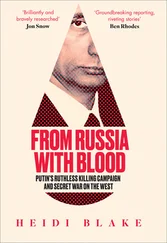Have I ever been in a moment that was not this one?
The man said that he remembered. That he had done nothing else, for years, but remember everything.
“For years I asked myself what I ought to do. But the truth is that I never was able to tell anyone. I never told anyone that you were there, that night. You may not believe it, but it’s so. At first, obviously, I didn’t say anything because I was afraid. But time passed, and it became something else. No one thought about the war anymore. People wanted to look ahead, they no longer cared about what had happened. It all seemed to be buried forever. I began to think that it was better to forget everything. Let it go.
At a certain point, however, it emerged that Roca’s daughter was alive, she was hidden somewhere, in a village in the south. I didn’t know what to think. It seemed to me incredible that she had come out of that inferno alive, but with children you can never say. Finally someone saw the girl and swore that it was really her. So I realized that I would never be free of that night. Neither I nor the others. Naturally I began to ask myself what she might have seen and heard. And if she could remember my face.
Who can know what happens in the mind of a child, con-fronted by something like that. Adults have a memory, and a sense of justice, and often they have a taste for revenge. But a child? For a while I convinced myself that nothing would happen. But then Salinas died. In that strange way.”
The woman was listening to him, motionless.
He asked if she wanted him to go on.
“Go on,” she said.
“It came out that Uribe had something to do with it.”
The woman looked at him without expression. Her lips were half closed.
“It may have been a coincidence, but certainly it was odd. Little by little everyone was persuaded that the child knew something. It’s difficult to understand now, but those were strange times. The country was going forward, beyond the war, at an incredible speed, forgetting everything. But there was a whole world that had never emerged from the war, and was unable to fit in with that happy land. I was one of those. We all were. For us nothing had ended. And that child was a danger. We talked about it a lot. The fact is that the death of Salinas didn’t go down with anyone. So finally it was decided that some-how the child should be eliminated. I know it seems madness, but in reality it was all very logical: terrible, and logical. They decided to eliminate her and charged the Count of Torrelavid to do it.”
The man paused. He looked at his hands. It was as if he were putting his memories in order.
“He was a man who had been a double agent for the whole war. He worked for them, but he was one of us. He went to Uribe and asked him if he would rather spend his life in jail for the murder of Salinas or vanish into nothing and leave him the child. Uribe was a coward. He had only to stay quiet, and no court would have succeeded in con-victing him. But he was afraid, and he fled. He left the child to the Count and fled. He died ten years later, in some godforsaken village on the other side of the border.
He left a note saying that he had done nothing and that God would follow his enemies to the gates of Hell.”
The woman turned to look at a girl who was laughing loudly, leaning on the bar of the café. Then she picked up the shawl that she had hung on the back of the chair and put it over her shoulders.
“Go on,” she said.
The man went on.
“Everyone expected that the Count would have her killed. But he didn’t. He kept her with him, at home.
They made him understand that he was supposed to kill her. But he did nothing, and kept her hidden in his house.
Finally he said: Don’t worry about the girl. And he married her. For months people spoke of nothing else, around there. But then people stopped thinking about it. The girl grew up and bore the Count three sons. No one ever saw her around. They called her Doña Sol, because it was the name the Count had given her. One strange thing was said about her. That she didn’t speak. From the time of Uribe, no one had ever heard her say a word. Perhaps it was an illness. Without knowing why, people were afraid of her.”
The woman smiled. She pushed back her hair with a girlish gesture.
Since it had grown late, the waiter came and asked if they wanted to eat. In one corner of the café three men had set themselves up and begun to play music. It was dance music. The man said he wasn’t hungry.
“I invite you,” the woman said, smiling.
To the man it all seemed absurd. But the woman insisted. She said they could have a dessert.
“Would you like a dessert?”
The man nodded yes.
“All right, then, a dessert. We’ll have a dessert.”
The waiter said it was a good idea. Then he added that they could stay as long as they wanted. They shouldn’t worry about it. He was a young man, and spoke with a strange accent. They saw him turn to the bar and shout the order to someone invisible.
“Do you come here often?” the woman asked.
“No.”
“It’s a nice place.”
The man looked around. He said that it was.
“Did your friends tell you all those stories?”
“Yes.”
“And you believe them?”
“Yes.”
The woman said something in a low voice. Then she asked the man to tell her the rest.
“What’s the point?”
“Do it, please.”
“It’s not my story, it’s yours. You know it better than I do.”
“Not necessarily.”
The man shook his head.
He looked again at his hands.
“One day I took the train and went to Belsito. Many years had passed. I was able to sleep at night and around me were people who didn’t call me Tito. I thought I had done it, that the war was really over and there was only one thing left to do. I took the train and went to Belsito, to tell the Count the story of the trapdoor, and the child, and everything. He knew who I was. He was very kind, he took me into the library, offered me something to drink, and asked me what I wanted. I said:
“‘Do you remember that night, at the farmhouse of Manuel Roca?’
“And he said: ‘No.’
“‘The night when Manuel Roca—’
“‘I don’t know what you’re talking about.’
“He said it with great tranquillity, even sweetness. He was sure of himself. He had no doubts.
“I understood. We spoke a little about work and even politics, then I got up and left. He had a young boy take me to the station. I remember because the boy couldn’t have been more than fourteen, yet they let him drive the car.”
“Carlos,” said the woman.
“I don’t remember his name.”
“My oldest son. Carlos.”
The man was about to say something, but the waiter had come with the dessert. He brought another bottle of wine, too. He said that if they wanted a taste it was a good wine to drink with sweets. Then he said something witty about the owner. The woman smiled, and did it with a movement of her head from which, years earlier, it would have been impossible to defend oneself. But the man barely noticed, because he was following the track of his memories. When the waiter left, he began to speak again.
“Before leaving Belsito that day, as I was walking down the long hallway, with all those closed doors, I thought that somewhere, in the house, you were there. I would have liked to see you. I would have had nothing to say to you, but I would have liked to see your face again, after so many years, and for the last time. I was thinking of that as I was walking down the hallway. And an odd thing happened. At some point one of those doors opened. For a second I was absolutely certain that you would come out of there, and would pass by me, without saying a word.”
Читать дальше
